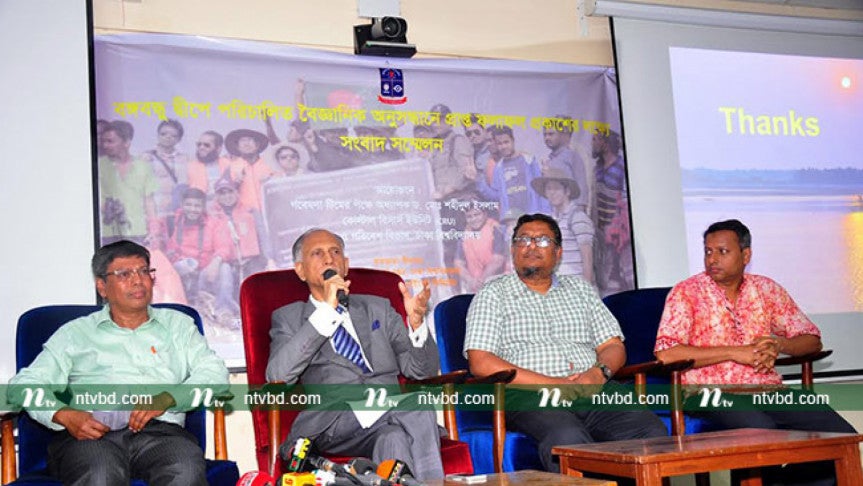Researchers for planned 'Bangabandhu Island' to flourish economy

Dhaka: Researchers stressed the need for adopting proper plan to make the newly-emerged Bangabandhu Island near Kotka and Dublar char in the Bay of Bengal as the role model of environment friendly and sustainable eco-tourism spot.
The 7.84 km island was formed gradually in the last one and half decades and notified after sea boundary demarcation. The Island is 9 km long and 500 metre wide. Currently, this Island is being forested with mangrove trees.
“We are only increasing the tourist numbers in Coxs’ Bazar, Inani, Teknaf, and St. Martin Island unplanned way. We are not giving the importance of maintenance and potentialities of eco-tourism,” said Shahidul Haque, a professor of Coastal Resources Unit of Department of Geography and Environment at Dhaka University (DU).
He was addressing a press conference at Prof Abdul Matin Multimedia Classroom of the department on Friday.
The government has become failure to attract both the local and foreign tourists, said Shahidul Haque, who presented the details about the exploration research work on the Island.
A team of 29-members, led by Professor Shahidul Haque, conducted the scientific research at the Island from February 11 to 16 last year.
He said, “By flourishing eco-tourism, many countries not only have kept their natural resources and environment unharmed but also have become able to draw the attention of local and overseas tourists. The Maldives is one of those countries which earn 28 percent of its total Gross Domestic Product (GDP) from eco-tourism sector.”
There is a potential of eco-tourism in the Bangabandhu Island. But right now, there is no scope for commercial tourism here, said Shahidul.
So, the government should come forward to build up the Island according to a proper plan to turn it as eco-tourism spot for earning huge foreign currency, he opined.
Referring to the DCP Survey, the findings also ensured that there is no quicksand and harmful elements anywhere in the Island. And for this, there is no barrier to flourish the tourism here soon.
DU Vice-Chancellor Prof Dr AAMS Arefin Siddique said the result about the research might create the possibility of using the marine resources, costal area resources and will be helpful to boost blue economy and tourism.
Fisherman Farazi and two others first discovered the Island in 1992 and it was later named Bangabandhu Island.
